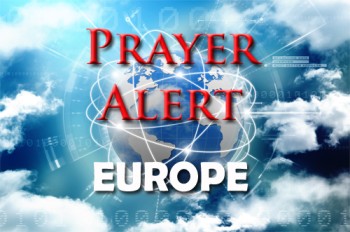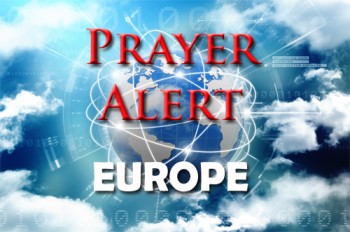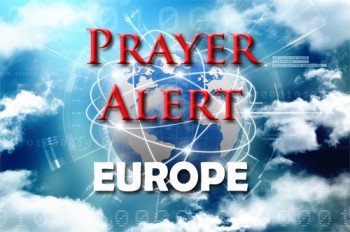Displaying items by tag: Conscription
Israel: looming crisis over conscription of ultra-Orthodox Jews
The long-standing exemption of ultra-Orthodox (Haredi) men from military service has potentially become a huge crisis for Benjamin Netanyahu. With the Gaza war placing immense strain on reservists, public opinion has shifted decisively toward ending the exemption, which was first granted in 1948. Although the high court ruled it illegal twenty years ago, political gridlock has kept it in place, so that only 1,200 of 24,000 drafted Haredi men reported for duty last year. Haredis have more than doubled their share of Israel's population over the past seven decades, and now account for 14%. What began as an exemption for several hundred religious students has now become a cohort of some 60,000 men left out of the draft. Street protests, clashes with police, and rapid-response networks reflect growing Haredi communal resistance. Supporters of conscription - religious and secular alike - argue that fairness and national survival demand shared burden. Yet ultra-Orthodox leaders insist that studying the Torah protects Israel spiritually and must remain untouched. Netanyahu’s fragile coalition depends on Haredi parties, making meaningful reform politically perilous. The Haredis are now locked in a debate over what it means to be Jewish and Israeli, and whether that means fighting for Israel or fighting for their way of life against the modern demands of war.
Russia: Putin orders 160,000 conscripts
Vladimir Putin has ordered the conscription of 160,000 new troops between April and July, targeting citizens aged 18 to 30. The spring draft is part of Russia’s biannual conscription cycle; the previous autumn round brought in 133,000 recruits. The decree also confirms that those whose conscripted service has ended will be discharged. Last year, Russia raised the conscription age limit from 27 to 30, and now maintains a military force of approximately 2.4 million, with 1.5 million on active duty. Despite increasing manpower, Russia’s war in Ukraine continues to take a heavy toll. Western and Ukrainian estimates suggest over 768,000 Russian troops have been lost—killed, wounded, missing, or captured—since the invasion began in 2022. November 2023 marked a grim record with over 2,000 casualties in a single day. Ukraine, too, has suffered significant losses; Volodymyr Zelensky has recently acknowledged over 43,000 soldiers killed. The drawn-out conflict remains costly and unresolved, as both nations brace for further battles.
Germany: conscription to be reintroduced?
Germany’s conservative leaders have argued that the country should quickly reintroduce compulsory military service. Friedrich Merz, leader of the new CDU/CSU government, argues that Europe must take greater responsibility for its defence, especially given NATO’s uncertain future. Defence spokesman Florian Hahn says the suspension of conscription ‘no longer fits the current threat situation’, and wants to see new conscripts before the end of 2025. Merz also supports a mandatory year of military or community service to strengthen personnel numbers. While conscription remains controversial, cross-party support for it is increasing. A new system, put in place by the previous government, will require 18-year-old men to complete a questionnaire about their interest in the army and their physical condition; for women it will be optional. A contingent of men and women will then be invited to a selection process. Without immediate action, Germany’s armed forces risk severe shortages in the coming years.
Russia: Russians fleeing motherland
When Putin announced ‘military mobilisation’, thousands of Russians rushed to the border. Hundreds of thousands have left since the invasion began. Many were against the war, so not wanting to be drafted they left. Poor training and insufficient kit for new soldiers prompted more men and their families to flee. Estimates of how many have left vary from hundreds of thousands to up to seven million. Leaving is easy; finding somewhere to stay is hard. Countries have changed their laws to block Russian immigrants. They limit how many days Russian tourists can stay. Unable to return home, Russians must apply for residency to work in the countries they settle in. In 15 months 155,000 Russians received temporary residence permits in the Balkans, Caucasus and Central Asia. 17,000 applied for political asylum in EU countries, but only 2,000 received it. Russia’s interior ministry says 40% more have applied for foreign passports in 2022 than 2021.
Lithuania: preparing for potential Russian invasion
Lithuania has been investing in defence, introducing conscription, and rebuilding a standing army in preparation for the worst. It may have started well before the prospect of a Donald Trump presidency, but has now become a matter of urgency, with the country preparing to erect a six-foot razor-wired fence between them and Russia. The country fears Russian aggression, two years after Putin invaded Ukraine and annexed Crimea. With a US president who has sowed doubt in the country's NATO commitments, Lithuanians are concerned that they could see an echoing of the events of January 1991 when, in the course of three days, the Soviet Union tried to take back control of the country just one year after it declared independence. Meanwhile, across the border, President Putin has reinforced the garrison and sent missiles capable of carrying nuclear warheads. In response, Lithuania will build its fence. In 2002, President George Bush said: "Anyone who would choose Lithuania as an enemy has also made an enemy of the United States of America," but Lithuanians are unsure if that will remain true after Donald Trump. See also: http://prayercast.com/lithuania.html




